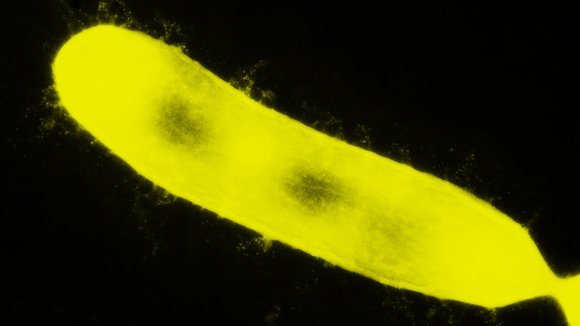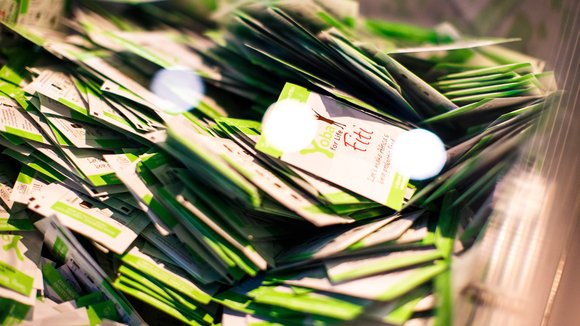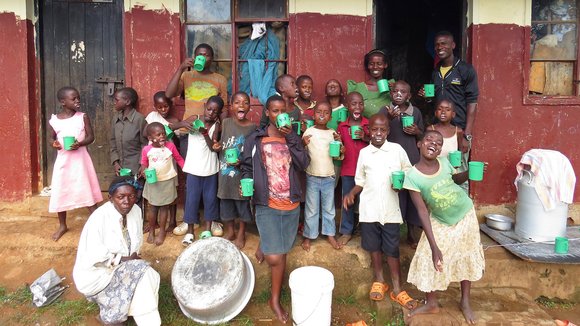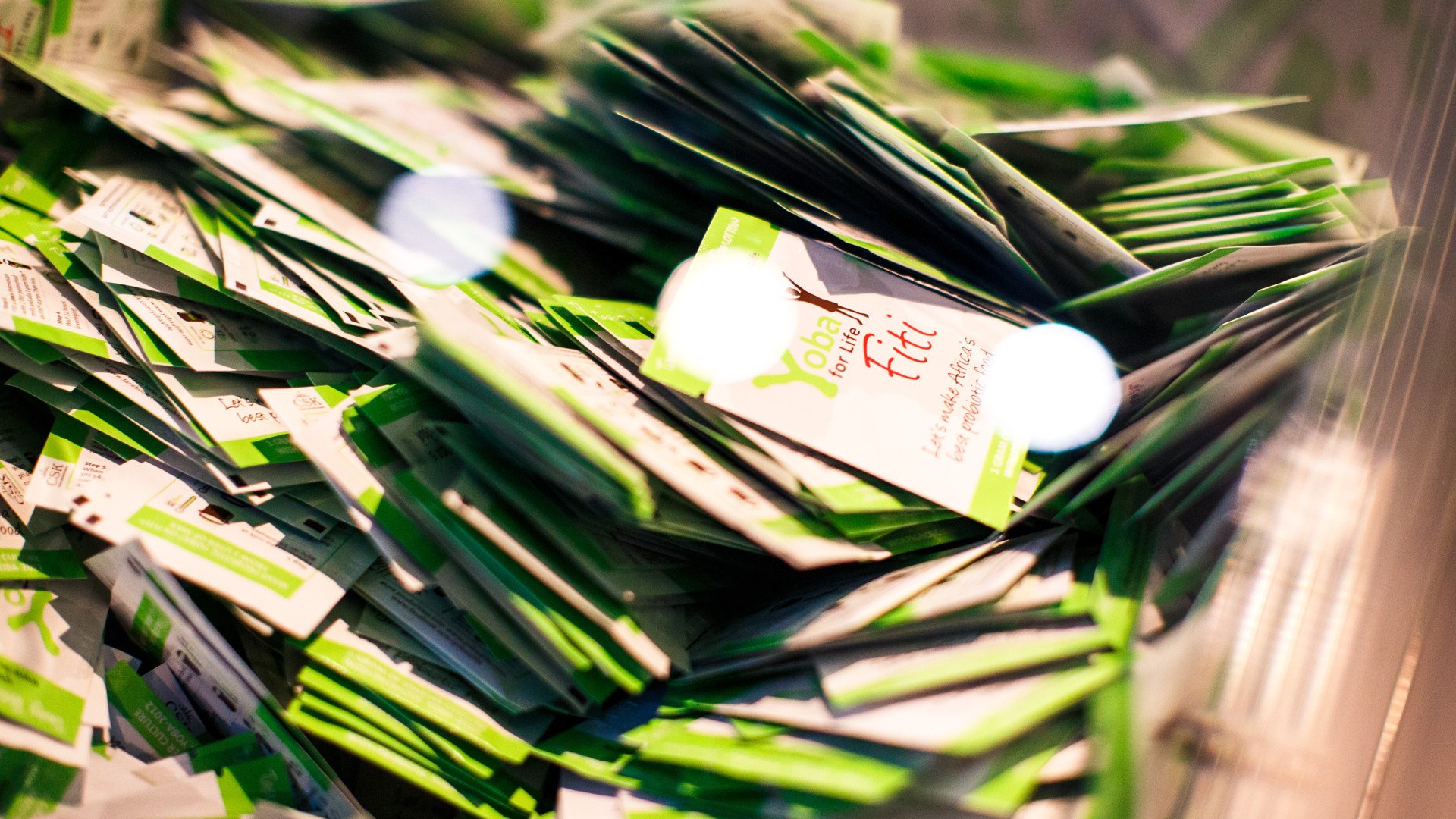In the night from 7 to 8 December 2015, an article on the background of the Yoba starter culture was published in the international scientific journal Microbial Cell Factories. Researchers from eight different organisations, including Yoba for Life Foundation, CSK food enrichment, VU University Amsterdam and Micropia, have been involved in the publication. The article describes the research process used to develop the new, freeze-dried starter culture for making the yoghurt drink. It also talks about the stability of the culture, which allows a shelf life of more than two years, and how it can be used to make the probiotic yoghurt in Africa.
The Yoba starter has been developed specifically for distribution in Africa. What is special about the starter is not just its long shelf life, but also the fact that – contrary to most other bacteria – it can survive the harsh acidic conditions of the stomach. The bacterium Lactobacillus rhamnosus GG has developed a special mechanism to bind to the intestinal wall, where it inhibits the colonisation of pathogenic organisms. As a result, this probiotic can help reduce diarrhoea, a leading cause of death in infants and young children in Africa.

Artist impression of L. rhamnosus isolated from Yoba. TEM photo by Electron Microscopy Unit, Institute of Biotechnology, Helsinki.
easy and affordable
The starter culture consists of two bacteria: the world’s first patent-free probiotic bacterium Lactobacillus rhamnosus yoba 2012 (which is indistinguishable from the well-known probiotic bacterium Lactobacillus rhamnosus GG) and a so-called auxiliary bacterium, Streptococcus thermophilus C106, which allows the Lactobacillus to increase in numbers in milk. Under normal circumstances, the Lactobacillus is not able to convert milk into yoghurt by itself. By adding the auxiliary bacterium, which was specially selected for this purpose by the Dutch company CSK food enrichment, the probiotic Lactobacillus can develop unhampered.
The researchers created the starter culture by freeze-drying both bacteria into a powder with long-term preservability. The Yoba starter (‘yo’ referring to yogurt, ‘ba’ to bacteria) will be packaged in easy-to-handle sachets. One gram of powder, containing around 10 billion bacteria, can be used to produce 100 litres of yoghurt drink within two days. The cost price of one sachet of powder is USD 0.80.

Yoba starter sachets.
also support of farmers with one cow
The principal researchers Prof. Remco Kort and Dr Wilbert Sybesma introduced the starter culture to the East African region, including Uganda and Tanzania, through their Yoba for Life Foundation. In Uganda, diarrhoea is still a leading cause of death in children. Here the powder is being sold at cost price and local distributed to farmers with one cow. Instead of selling just milk, the farmers are now also able to produce and sell the healthy probiotic Yoba yoghurt drink. Besides instructions on how to use the starter culture, the farmers also receive support in setting up small yoghurt factories.
Kort: ‘Clinical studies have shown that sufficient intake of this bacterium can help prevent diarrhoea. Therefore, we believe this discovery provides people in developing countries with a unique solution, enabling them to independently produce probiotic products that they normally wouldn’t be able to afford.’ Various field studies also show that the bacterium shortens the duration of diarrhoea, especially in the treatment of rotavirus diarrhoea.
The introduction has been a great success. Currently, 5,000 litres of probiotic Yoba yoghurt a week are being produced by some 40 farmers, and 30,000 consumers are already using the product. The local producers are also coming up with names for their yoghurt drinks, such as Yummies.

Orphanage in Kampala, Uganda, with their self-produced Yoba yoghurt. Photo: Felicia Prade for Yoba.
a connecting link between science and the public
Micropia is not only a museum, but also a platform, a connecting link between science and the public. This is how Micropia builds upon the growing importance of biotechnology and life sciences.
This research project, which was conducted by Micropia Professor Remco Kort and his Yoba for Life Foundation, is an example of how Micropia makes the world of micro-organisms accessible to a wide public. Micropia strives to raise awareness for the health benefits of fermented foods since this healthy tradition has fallen into disuse through the years. In Micropia visitors can watch Lactobacillus bacteria move, eat and reproduce live under a microscope.
Yoba for Life
The Yoba for Life Foundation is a nonprofit network organisation that helps people in Africa improve their health and prosperity.
Researchers from the following institutions contributed to the development of the new Yoba starter culture: Micropia, the Yoba for Life Foundation, VU University Amsterdam, Netherlands Organisation for Applied Scientific Research (TNO), University of Helsinki (Finland), University of Western Ontario (Canada), Makerere University (Uganda) and the Dutch company CSK food enrichment.

